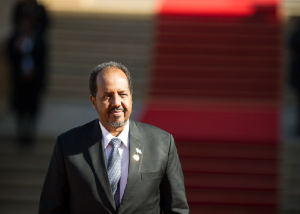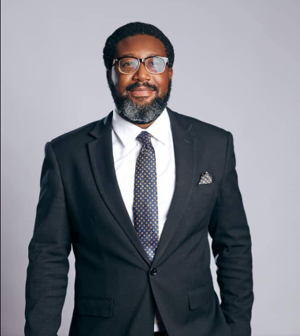Ghanaian doctors warn that the health services will break down unless the government takes urgent action to pay health professionals a decent wage and curb the activities of overseas recruitment agencies enticing them to accept salaries up to 20 times higher.
"This practice is illegal. It is criminal for countries that have more than enough health professionals to recruit from our country knowing that we do not even have the minimum numbers to run our health facilities," the President of the Ghana Medical Association (GMA), Jacob Plange-Rhule told IRIN.
Ghana has been grappling for years with a brain drain of doctors, nurses, pharmacists and medical technicians. Thousands have left for the United States, Britain and South Africa, to escape low pay and poor conditions of service at home.
The State of the Ghanaian Economy Report 2002 records that 3,157 health workers left between 1993 and 2002. That represented over 31 percent of health professionals trained in Ghana during the same period.
More than two thirds of the doctors trained at Ghana's two teaching hospitals over the same decade - 594 out of 871 - packed their bags and left.
The GMA complains that foreign recruitment agencies working in Ghana have aggravated the situation.
"Our colleagues are just not allowed to make their own decision to leave. They are actually induced to leave," Plange-Rhule said. "Imagine getting offers from all kinds of agencies promising to pay overnight 20 times what you earn a month in Ghana for your qualifications. Definitely, no one will stay."
The Health Ministry says it would like to curb the activities of these recruitment agencies, but it cannot enforce a total ban.
"Movement of labour on the international level is free. We can not impose a total ban otherwise our health professionals will just simply resign and leave," Health Ministry spokesman Kofi Amponsah-Bediako told IRIN. "A more realistic solution to this difficult situation is to consistently improve the conditions of service of our health workers."
The basic salaries of Ghanaian doctors and nurses are among the lowest in the world. The government has gone some way to try and improve them by offering generous overtime allowances and official cars. However, this in turn has led to overspending, which has got the government into trouble with the International Monetary Fund (IMF).
The Health Ministry declined to provide a pay scale, but IRIN enquiries amongst doctors revealed that the basic salary of a General Practitioner (GP) at a government hospital is about two million cedis (US $ 230) per month.
A nurse earns a basic wage of about 800,000 Cedis (US $ 92).
However, in a bid to stem the exodus of health professionals, the government tops up these basic salaries with special Additional Duty Allowances that can more than triple take-home pay.
GP's are paid about five million cedis (US $ 575) per month in such allowances, while nurses get around 1.5 million cedis (US $ 172).
The GMA says the allowances have helped to retain many staff who would otherwise have gone abroad, but they are frowned on by the IMF, which advocates a uniform pay structure for all health workers.
"Whether we like it or not, the payment of this allowance has stemmed to tide of the exodus," Plange-Rhule said. Any attempt to stop it will rather have a negative effect in escalating an already bad situation,"
He urged the IMF to be more flexible and imaginative in its approach. "The IMF and other world bodies are ready to put money into poverty alleviation. A big part of poverty alleviation is ensuring good health and health workers provide this service," the GMA chairman said.
The Health Ministry is also adamant that the allowances are vital for retaining staff. "We have kicked against the IMF conditionality against paying out these allowances because we are losing all our health workers.
This is the only way to get them to stay and work in Ghana," Amponsah-Bediako, a ministry spokesman said.
Professor Jeffrey Sachs, Special Advisor to the UN Secretary-General on the Millennium Development Goals (MDG), supports the government view.
"The IMF is making a bad mistake by insisting on the withdrawal of these allowances," he told IRIN.
"Salaries of health professionals should be increased to keep them in the country. If Ghana cannot pay its health professionals adequately, it is the responsibility of the IMF and other donor agencies to chip in and help. Otherwise, Ghana might not meet its health goals as stated in the MDG."
These range from halving poverty to halting the spread of HIV/AIDS by 2015.
The problem is that the paying of top-up allowances to doctors and nurses has given rise to serious over-spending, which has annoyed the IMF, the World Bank and other donors, on whom Ghana's aid-driven economy is dependent.
Finance Ministry officials said unbudgeted wage increases to health workers and other government workers were key factors which prevented the government from meeting its IMF-set budgetary targets last year.
The World Bank, the IMF and other donors failed to disburse loans worth $147 million in the last quarter of 2002 because of this overshoot.
The government says its is pumping a lot of financial resources into the health sector in order to avert the constant threat of strikes by doctors and nurses in other ways too.
Officials point out that the Health Ministry has more vehicles allocated to it than any other government department. And the government is securing a $10 million loan to build affordable housing for medical staff.
"We are doing our best," Amponsah-Bediako said. He stressed that when President John Kufuor was elected in 2001 "the health sector was in virtual collapse."
"The improvements are gradual because we are faced with so many constraints," he added. We can not focus on the doctors or nurses alone," Amponsah-Bediako added.
Waiting hours to see the doctor
Interview with the President of the Ghana Medical Association
General News of Saturday, 4 October 2003
Source: IRIN












